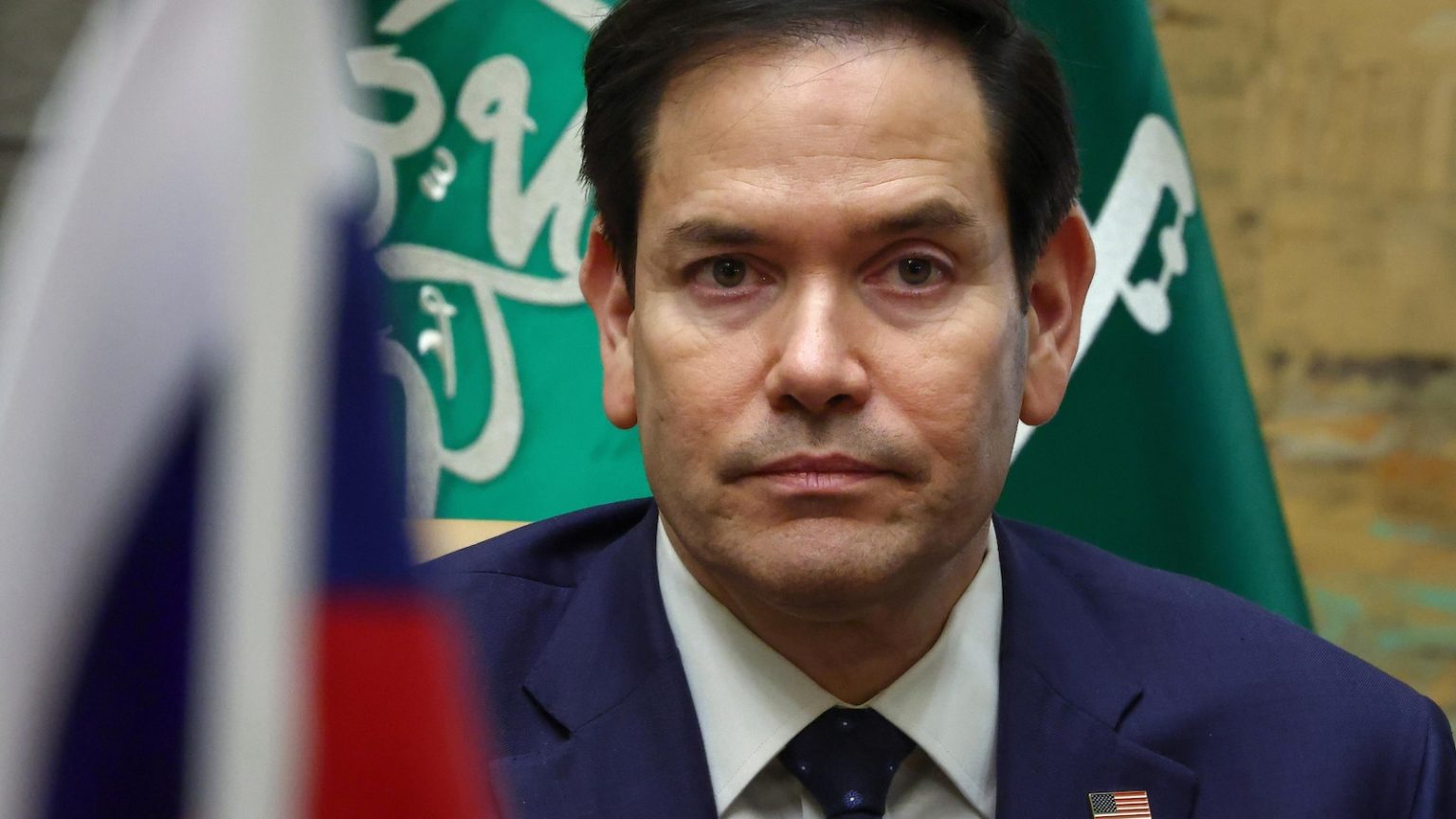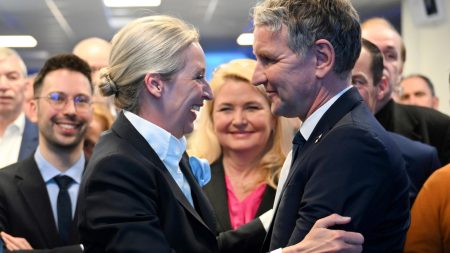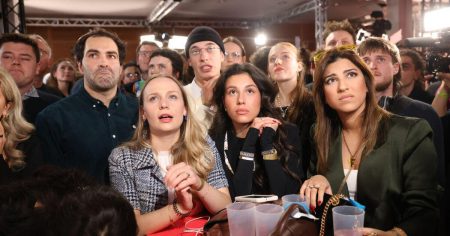U.S. Secretary of State Marco Rubio Skipping G20 Meeting in Johannesburg
In a significant move that underscores rising tensions between the United States and South Africa, U.S. Secretary of State Marco Rubio has decided to skip a two-day G20 meeting of foreign ministers in Johannesburg. The meeting, which began on Thursday, brings together representatives from the world’s leading rich and developing nations. Rubio’s absence comes after he openly criticized South Africa’s policies as anti-American, further straining relations between the two nations.
Rubio, who is returning to the United States after his first trip to the Middle East as America’s chief diplomat, had been leading a U.S. delegation in talks with Russia in Riyadh regarding the ongoing war in Ukraine. Following his meeting with Russian Foreign Minister Sergey Lavrov, Rubio briefed foreign ministers from France, Germany, Italy, and the United Kingdom, as well as the European Union’s foreign policy chief. Despite Rubio’s absence, the G20 meeting will still see the participation of top diplomats, including Lavrov and Chinese Foreign Minister Wang Yi. However, the U.S. will be represented by a lower-level delegation, which analysts say diminishes Washington’s influence at a forum that is typically a key platform for advancing American interests, especially at the start of a new administration.
Rubio’s Criticism of South Africa’s G20 Presidency
Rubio’s decision to skip the G20 meeting is not just a reflection of his personal stance but also aligns with the Trump administration’s broader indifference to international cooperation platforms. South Africa, as the first African nation to hold the G20 presidency, has chosen the theme of “solidarity, equality, sustainability” for this year’s summit. The host nation has emphasized its commitment to advancing the interests of poor countries, particularly in areas such as debt refinancing and climate change mitigation. However, Rubio has been vocal in his disapproval of South Africa’s priorities, calling them anti-American.
In a recent post on X (formerly Twitter), Rubio criticized South Africa for using the G20 platform to promote diversity, equality, and inclusion frameworks, which he summarized as “DEI and climate change.” He further stated, “My job is to advance America’s national interests, not waste taxpayer money or coddle anti-Americanism.” This rhetoric highlights Rubio’s alignment with the Trump administration’s “America First” approach, which prioritizes unilateral action over multilateral cooperation. Rubio has also announced that he will not attend the main G20 summit in Johannesburg in November, further signaling U.S. displeasure with South Africa’s leadership of the group.
Deteriorating U.S.-South Africa Relations
Rubio’s absence from the G20 meeting underscores a significant deterioration in U.S.-South Africa relations, which have been strained in recent months. South Africa, one of the U.S.’s key trade partners in Africa, has faced criticism from the Trump administration for its foreign policy decisions. Earlier this month, President Donald Trump signed an executive order halting U.S. aid and assistance to South Africa, citing concerns over a land law that he claims discriminates against the country’s white minority. The order also accused South Africa of pursuing an anti-American foreign policy, particularly in its handling of issues such as its ongoing case accusing Israel of genocide in Gaza at the International Court of Justice and its close ties to the Chinese Communist Party.
Despite these tensions, South African Foreign Minister Ronald Lamola emphasized that the U.S. would still be represented at the G20 meeting in some capacity. He clarified that Rubio’s decision was “not a complete boycott of South Africa’s G20” by the U.S., suggesting that there may still be room for cooperation. However, the strained relationship between the two nations raises questions about how effectively they can work together under G20 protocols, especially as South Africa prepares to hand over the G20 presidency to the U.S. at the end of the year.
Opportunities for Progress Despite Limited U.S. Engagement
While Rubio’s absence and the Trump administration’s broader indifference to multilateralism may limit the G20’s potential to achieve significant progress, analysts argue that the forum can still make headway under South Africa’s leadership. The European Union, Russia, and China have all expressed support for South Africa’s priorities, particularly in areas such as climate change and debt relief for developing nations.
Oscar van Heerden, a senior researcher at the University of Johannesburg’s Centre of African Diplomacy and Leadership, noted that while no country wants to antagonize the United States, the foreign policy priorities of other G20 members may not align with those of Washington. “No one wants to be on the wrong side of the United States,” he said, “but I think everyone also realizes that what drives the foreign policy of the United States is not necessarily what drives the foreign policy of the European Union or the other members of the G20.”
This divergence in priorities is particularly evident in the EU’s commitment to multilateralism and inclusivity. EU foreign policy chief Kaja Kallas, speaking in South Africa, emphasized the importance of using the G20 platform to strengthen the international system and make it more inclusive for all nations. “Multilateralism is under threat right now,” she said, highlighting the need for collective action to address global challenges.
The Future of Multilateralism and the G20
The G20 meeting in Johannesburg serves as a microcosm of the broader challenges facing multilateralism in an increasingly polarized world. While the Trump administration’s decision to sideline the forum reflects its skepticism of international cooperation, other nations remain committed to leveraging the G20 as a platform for dialogue and problem-solving.
For South Africa, hosting the G20 is an opportunity to amplify the voices of developing nations and push for a more equitable global order. The country’s focus on solidarity, equality, and sustainability resonates with many in the Global South, who see the G20 as a space to address pressing issues such as climate change and economic inequality. However, the absence of high-level U.S. representation underscores the difficulties of achieving consensus in a fragmented international landscape.
As the G20 transitions to U.S. leadership next year, questions remain about whether Washington will shift its approach and engage more constructively with the rest of the world. For now, the Johannesburg meeting serves as a reminder of the enduring importance of multilateralism, even as the United States signals its indifference to such forums. The success of the G20 under South Africa’s presidency will depend on the ability of its members to find common ground and work toward shared goals, despite the challenges posed by rising geopolitical tensions.















